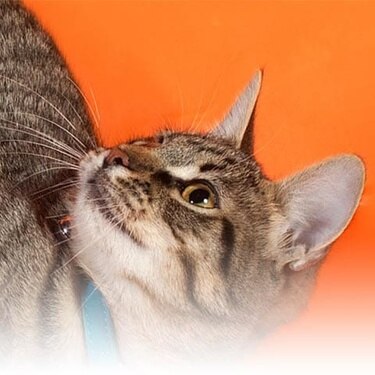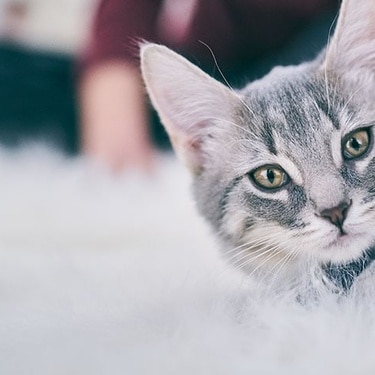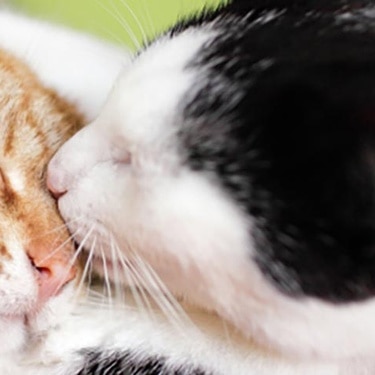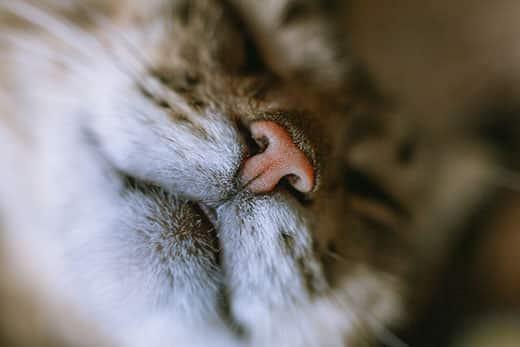
-
Find the right food for your petTake this quiz to see which food may be the best for your furry friend.Find the right food for your petTake this quiz to see which food may be the best for your furry friend.Health CategoryFeatured products
 Adult 6+ Large Breed Chicken Meal, Barley & Rice Recipe Dog Food
Adult 6+ Large Breed Chicken Meal, Barley & Rice Recipe Dog FoodSupports energy level, joint health, and beautiful coat in large breed mature dogs
Shop Now Puppy Sensitive Stomach & Skin Salmon & Vegetable Stew
Puppy Sensitive Stomach & Skin Salmon & Vegetable StewGentle on stomachs while nourishing skin & supporting development in growing puppies
Shop Now Adult Perfect Weight & Joint Support Chicken & Brown Rice Recipe Dog Food
Adult Perfect Weight & Joint Support Chicken & Brown Rice Recipe Dog FoodThis weight management and mobility support dog food was created with Hill’s unique understanding of the biology of overweight dogs.
Shop Now -
DogCat
- Cat Tips & Articles
-
Health Category
- Weight
- Skin & Food Sensitivities
- Urinary
- Digestive
- Kidney
- Dental
- Serious Illness
-
Life Stage
- Kitten Nutrition
- Adult Nutrition
Featured articles Pet Food Storage Tips
Pet Food Storage TipsWhere you store your cat and dog food can make a big difference in the quality and freshness once it is opened. Here are some common questions and recommendations for optimal storage for all of Hill’s dry and canned cat and dog food.
Read More Water
WaterWater is the most important nutrient of all and essential for life. Animals can lose almost all their fat and half their protein and still survive, but if they lose 15% of their water, it will mean death.
Read More The Right Diet For Your Pet
The Right Diet For Your PetLearn what to look for in healthy pet food & nutrition, including ingredients, quality of the manufacturer, your pet's age, and any special needs they have.
Read More -


Should you be worried if your cat's nose is running? It really depends on the situation. The truth is that while some runny noses can be easily treated, it is sometimes indicative of a larger health issue. That is why it is always important to seek advice from your vet, especially if your cat has experienced congestion or a runny nose for a while. Read on to learn what causes runny noses in cats and to find out when you should take your cat to the veterinarian for treatment.
Why Your Cat's Nose Is Running
If your kitty has a runny nose, then it's likely due to inflammation, trauma or infection of the tissues in their nasal cavities or sinuses. But if your cat is consistently snotty, then they could have an upper respiratory infection. Most upper respiratory infections in cats are caused by viruses, like herpes viruses and caliciviruses, according to the Merck Veterinary Manual.
Bacterial infections are the second most common cause of runny noses, which include Chlamydophila felis and Bordetella bronchiseptica. Thankfully, if your cat has had their recommended vaccines their risk of contracting these infections is dramatically diminished.
Beyond simple upper respiratory infections, though — most of which are mild and don't require treatment—there are several possible explanations for why your cat's nose is running, and these include:
- Rhinitis: In general, rhinitis refers to the inflammation of the nasal passages, which leads to a runny nose. Rhinitis can be caused by an upper respiratory tract infection, bacteria, a virus, and, less commonly, fungus. Allergies are also a possibility, but they're not an especially common cause of rhinitis in cats.
- Foreign bodies: When a cat inhales a foreign body, whether a piece of food or a strand of yarn, they can get a runny nose with coloured discharge.
- Nasal cancer: This type of cancer can be aggressive in cats. In its early stages, it can lead to a simple runny nose, but may eventually progress to facial swelling, thick or coloured discharge, pain and congestion, among other signs.
- Bloody nose: Clotting problems, cancer, foreign bodies or an inflammatory disorder can lead to a bloody nose.
- Trauma: Blows to the nose can cause bloody discharge that turns clear as the swelling subsides. Nasal discharge resulting from trauma can also become infected and turn greenish-yellow.
- Toxic irritants: Exposure to toxins can lead to severe nasal irritation and inflammation, which can, in turn, lead to a runny nose.
- Nasal polyps: Benign growths can cause persistent sneezing, congestion and a runny nose.


Tasty Tips
When to Take Your Cat to the Vet
Just because your cat's nose is running doesn't necessarily mean you need to dash off to the vet. In most cases, a runny nose is part of the normal nasal clearing process and/or the result of an infection that will clear up on its own. Yet it is important to keep an eye on your cat if they are experiencing any of those symptoms.
The most common signs in cats with runny noses include sneezing, nasal discharge, red and runny eyes, coughing, oral or nasal ulcers, sniffles, fever and hoarseness. These common signs tend to accompany upper respiratory tract infections and often warrant a trip to the vet to ensure your cat is well looked after and receives the treatment needed in order to restore their health.
More problematic signs you should be on the lookout for include severe eye swelling, bloody or greenish discharge, extreme lethargy, a high fever, poor appetite and difficulty breathing. Cats with these signs may just have a nasty cold, but they're also more likely to have bronchopneumonia or even cancer. Take your cat to their vet right away if you notice any of these signs. Early treatment can make a big difference.
Cat Runny Nose Treatment
If you have concerns about your cat's runny nose, then you should always consult your veterinarian. While sometimes a runny nose is just a runny nose, the potential of it being a greater health concern is worth getting an expert opinion to help keep your kitty feeling happy and healthy.
As with any cat health issue, the vet first needs to determine the cause before making treatment recommendations. Your cat's vet can pinpoint what's causing their runny nose by conducting nasal discharge analysis and blood tests. If they determine that treatment is necessary, they may prescribe an antibiotic or another medication to help clear the nasal passages and alleviate congestion. They may also recommend using a nebulizer machine that delivers medicine through a vapor.
While runny noses are often harmless, know that even severely snotty cats can often be effectively treated.


Dr. Patty Khuly is an award-winning veterinarian known for her independent thinking, her spirited pet advocacy, her passion for the veterinary profession, and her famously irreverent pet health writing.
Dr. K is an honors graduate of both Wellesley College and the University of Pennsylvania School of Veterinary Medicine. She received her MBA at The Wharton School of Business as part of the prestigious VMD/MBA dual-degree program. She now owns Sunset Animal Clinic, a veterinary practice in Miami, Florida.
Related products

Gourmet daily nutrition, carefully made. Tasty chunks with chicken & beef in a decadent gravy. Supports digestive health, nourishes skin and promotes a lustrous fur.

With delicious chunks in a decadent gravy

With delicious chunks in a decadent gravy

With delicious chunks in a decadent gravy
Related articles

Get helpful information on proper feline oral healthcare and why it's so vital to take care of your cat's teeth.

As a responsible pet owner you owe it to yourself and your cat to understand problems associated with overweight cats.

HillsPet Nutrition provides information on proper nutrition, fitness and special needs in keeping your cat healthy and happy.

Being overweight puts a cat at risk for developing many serious health issues. Weight gain indicates an increase in body fat and usually results when your cat eats too much and exercises too little.

Put your cat on a diet without them knowing
Our low calorie formula helps you control your cat's weight. It's packed with high-quality protein for building lean muscles, and made with purposeful ingredients for a flavorful, nutritious meal. Clinically proven antioxidants, Vitamin C+E, help promote a healthy immune system.
Put your cat on a diet without them knowing
Our low calorie formula helps you control your cat's weight. It's packed with high-quality protein for building lean muscles, and made with purposeful ingredients for a flavorful, nutritious meal. Clinically proven antioxidants, Vitamin C+E, help promote a healthy immune system.


